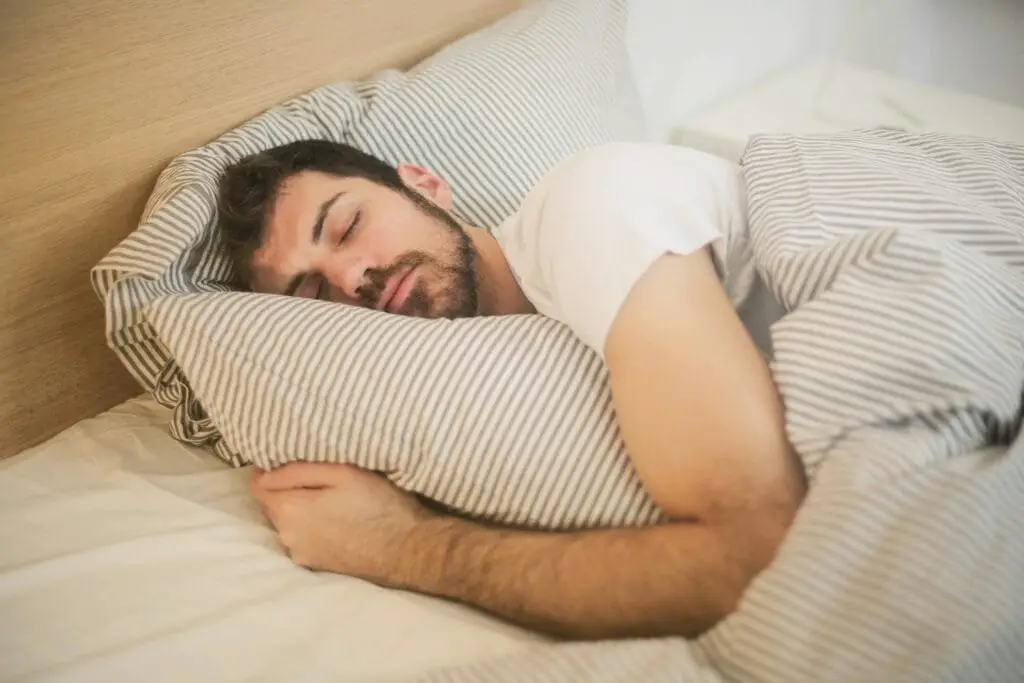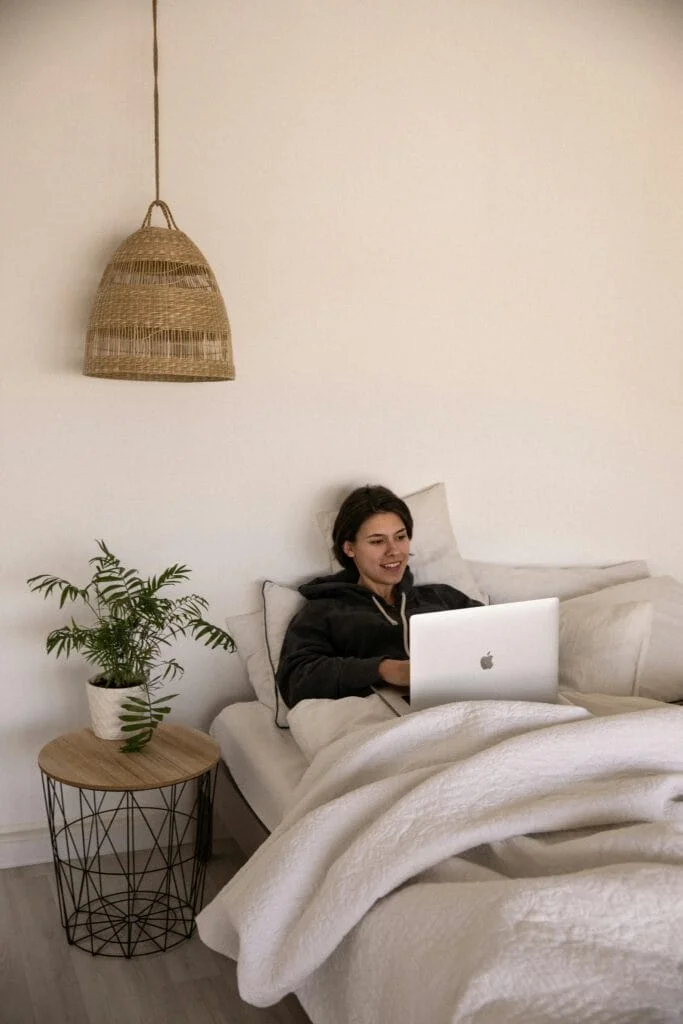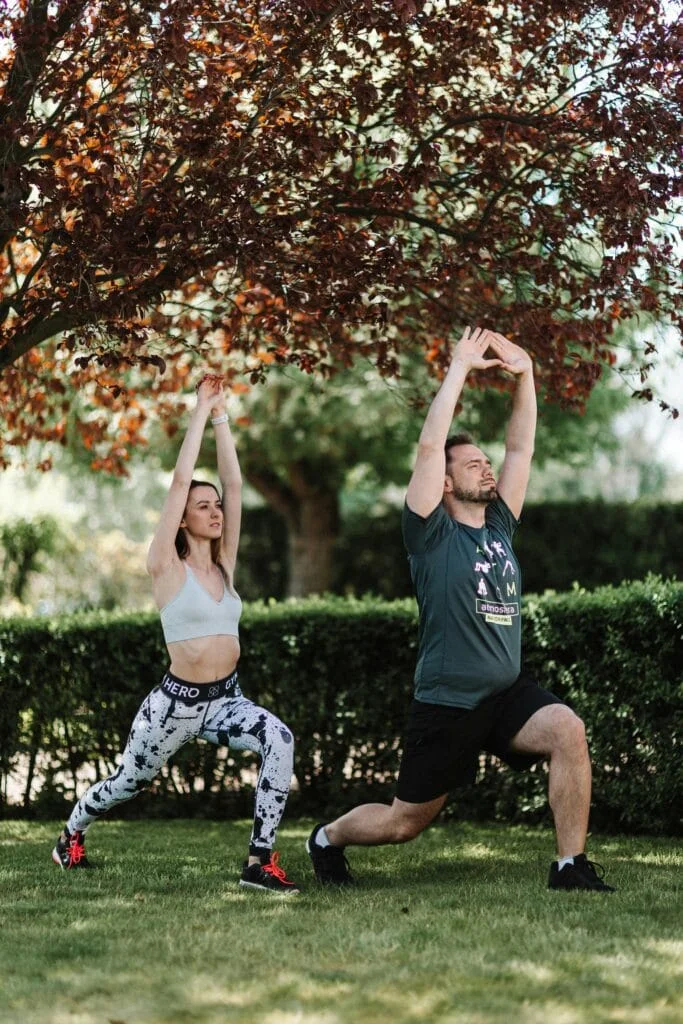Getting a good night’s sleep doesn’t have to mean relying on sleep aids or fancy gadgets. Sometimes, the old-school methods are the best when it comes to drifting off peacefully. Here are 12 classic sleep tips that will have you catching Z’s in no time.
1. Stick to a Consistent Sleep Schedule

Your body loves routine, and going to bed and waking up at the same time every day helps regulate your internal clock. It may feel simple, but consistency is key for better sleep—yes, even on weekends!
2. Wind Down With a Warm Bath

A warm bath before bed is a time-tested way to relax. It raises your body temperature slightly, and when you cool down afterward, it signals to your brain that it’s time to sleep. Plus, who doesn’t love a bit of pampering?
3. Limit Screen Time Before Bed

The blue light from phones, tablets, and TVs can trick your brain into thinking it’s still daytime. Try putting your screens away at least an hour before bed and switch to something low-tech, like reading or listening to music, to help your brain wind down.
4. Create a Sleep Sanctuary

Make your bedroom a peaceful haven. Keep it cool, dark, and quiet—like a cozy cave. Consider blackout curtains, a fan for white noise, or even an old-fashioned sleep mask to block out any distractions.
5. Sip on a Cup of Herbal Tea

Chamomile tea is a classic for a reason. Herbal teas like chamomile, lavender, or valerian root are known for their calming properties and can help signal to your body that it’s time to relax and get ready for sleep.
6. Practice Deep Breathing

Slow, deep breaths can help calm your nervous system and get you in the right frame of mind for sleep. Try inhaling for four counts, holding for seven, and exhaling for eight—an old trick that’s surprisingly effective.
7. Keep a Regular Evening Routine

Your brain thrives on rituals, and having a consistent evening routine helps prepare your body for rest. Whether it’s washing your face, brushing your teeth, or writing in a journal, doing the same activities every night signals to your body that sleep is coming.
8. Avoid Heavy Meals Before Bed

Eating a big meal right before bedtime can make it harder for your body to settle down. Aim to have dinner a few hours before you sleep, and if you need a snack, keep it light—like a banana or some nuts.
9. Limit Caffeine and Alcohol

Caffeine can stay in your system longer than you think, making it tough to sleep, while alcohol might help you fall asleep initially, but it disrupts deep sleep. Stick to herbal tea or water in the evenings for a better night’s rest.
10. Get Some Fresh Air and Sunshine

Exposure to natural light during the day helps regulate your circadian rhythm, making it easier to fall asleep at night. A morning walk or even just sitting outside for a bit can do wonders for your sleep cycle.
11. Write Down Your Worries

If your mind races as soon as you hit the pillow, try keeping a notebook by your bed. Write down any thoughts or worries so you can let them go for the night. It’s a simple way to clear your mind and make room for sleep.
12. Make Your Bed in the Morning

This might sound strange, but making your bed in the morning can help set the tone for the rest of the day—and make getting into it at night feel even more inviting. There’s something comforting about a tidy, welcoming bed that helps you relax.
13. Practice Progressive Muscle Relaxation

This old-school technique involves tensing and then slowly releasing each muscle group in your body, starting from your feet and moving up to your head. It helps release physical tension and prepares your body for sleep.
14. Keep Your Feet Warm

Cold feet can make it harder to fall asleep. Wearing socks to bed or placing a hot water bottle at your feet can help regulate your body temperature and make drifting off easier.
15. Avoid Napping Late in the Day

While naps can be beneficial, long or late-afternoon naps can interfere with nighttime sleep. If you need a nap, aim for 20-30 minutes and make sure it’s earlier in the day.
16. Listen to Soothing Sounds

White noise, nature sounds, or calming music can help relax your mind and drown out any disruptive background noise. The rhythmic, repetitive sound helps signal to your brain that it’s time to sleep.
17. Use Aromatherapy

Scents like lavender and chamomile have been used for generations to promote relaxation. Try using an essential oil diffuser, pillow spray, or even a few drops of lavender oil on your pillow to create a calming sleep environment.
The best sleep solutions aren’t always the latest fads or supplements—they’re often the simple, old-school habits our grandparents swore by. Give these timeless tips a try, and you just might find yourself drifting off easier than ever.


